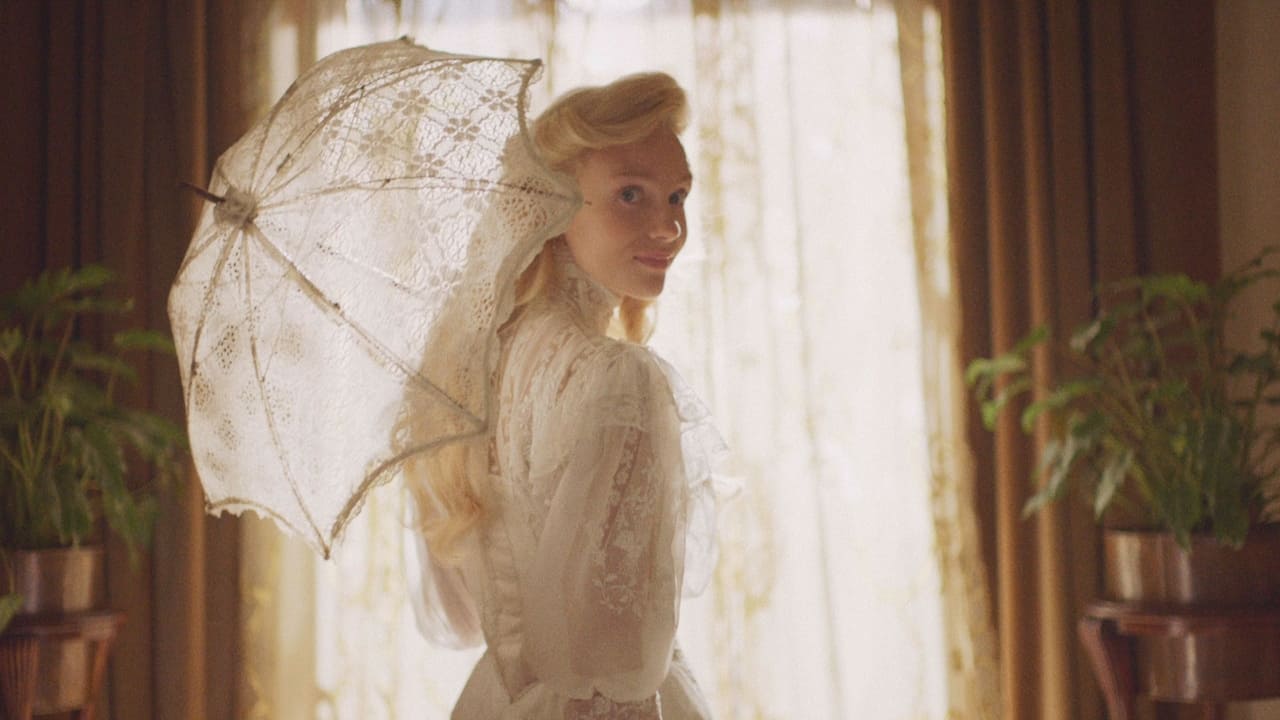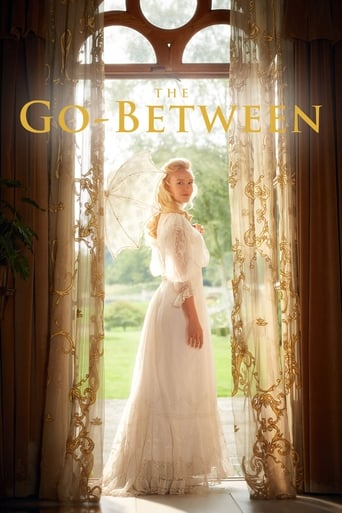

One can understand the BBC's desire to remake "Cider with Rosie" and "Lady Chatterley's Lover", and perhaps even "An Inspector Calls", although the last has at least two fine filmed versions, but their decision to remake "The Go-Between" was a misguided one.Jospeh Losey's 1971 version is one of those rare occasions in which everything seemed to be right - a top notch cast, beautiful cinematography, a terrific Michel Legrand score and a superb Harold Pinter screenplay. L.P. Hartley himself was moved to tears after seeing the film. So then why remake it? How could it possibly fare in comparison?This television version does not even begin to complete with its predecessor. Adrian Hodge shows little faith in his audience forgoing any subtlety in his dialogue and general characterisation. The cast are a pale and uncharismatic bunch. Seek out Hartley's novel and Losey's film – they are masterpieces. Skip this one.
... View MoreI'm of the generation that remembers the original transmission from 1971, at the time it was a pretty big production. The new (2015) production seemed to come and go without drawing much attention to itself. It was fairly understated, non lavish, but enjoyable enough way to spend 90 minutes. I was pleased to see the names of Jim Broadbent and Vanessa Redgrave appear in the RT, but fans of both will be disappointed by their respective lack of screen time, with each appearing only fleetingly as Leo and Marian in their twilight years. The production hang over the shoulders of young Jack Hollington, and the young man did not disappoint. He captured Leo's complex relationship with Marian particularly well. I'm pleased to see the DVD is available as it's a production worthy of further viewings. Accomplished and enjoyable.
... View MoreI am, more often than not, left disappointed when my favourite literary classics are adapted for television or the big screen, and while this BBC production of LP Hartley's novel is not perfect, it does better than most.The drama begins with a crushed, sorrowful looking older Leo (Jim Broadbent) travelling on a train to Norfolk, the scene of his foreign past. He imagines his younger self, (Jack Hollington) who accuses him of being a "Dull Dog." The older Leo then lays the blame for him being this "creature of ashes and cinder" squarely on the shoulders of his younger self. I found it to be a clever, and moving way of beginning the story. We then travel back fifty years in time to the scorching summer of 1900 and the characters that would haunt Leo into his old age.Leo spends his holidays at the country manor of his upper-class friend Marcus. (Samuel Joslin) It is here that he meets the beautiful, but manipulative and selfish Marian, (Joanna Vanderham) who he becomes instantly besotted with. He then becomes a postman of sorts, as he delivers love letters between Marian and her bit of rough, the tenant farmer Ted Burgess. (Ben Batt)Over the course of the summer, Leo feels increasingly uncomfortable and guilty about ferrying these correspondence, which he now knows aren't just "normal letters," back and forth. The engagement of Marian to the landlord, war hero, and thoroughly decent Trimingham (Stephen Campbell Moore) increases Leo's torment even further.I found it to be well directed, beautifully shot, with picture perfect locations. The performances were excellent throughout, especially from Master Hollington as young Leo. His acting was subtle, natural, intuitive and he had a charismatic presence that you could not take your eyes off of. One to watch out for I would say.At times it felt a little rushed, especially at the end where Broadbent returns as Leo, Batt as Marian's grandson, and Vanessa Redgrave plays the part of an older Marian. That is just a small complaint though. Overall, I found it to be a very moving adaptation of my favourite LP Hartley novel
... View MoreThis was a major disappointment compared to the novel and original film. Like most modern period dramas, it is style over substance, with stunning photography masking a misguided script and some unconvincing acting.The earlier 1971 movie was a flawless adaptation, with Harold Pinter's script tending to say less with more, upping the tension with the slow, languid pace reflecting the heat of the summer and limited, meaningful dialog. Here, unnecessary lines are inserted as will, many not even in the novel, such as Leo's embarrassment about his old and ragged summer clothes after Marian accuses him of lying – this is just a cheap way of garnering sympathy for the boy, and not reflective of the times it was set. Such things would have been left unsaid. It is the same through the program; everything needs to be spelt out, rather than leaving it to the actors to subtly convey.There are poor minor plot additions such as Ted seeming defensive about being poor – certainly not true to the book, and a far cry from Alan Bates and his worldly self confidence. Here he attempts to be brooding and moody, as oppose to charismatic and cheery but with a fiery temper, and it makes him far less likable and far less obvious why Marian would risk everything for him. Mariam herself is only passably acted, with Julie Christie an impossible act to follow. Marian's father being away is another pointless adjustment, and the production misses his steady, world weary presence, especially in the smoking room scene that was so integral to the first film. Trimmingham also loses some of his aristocratic dignity and military bearing, and the writer inexplicably takes away his fantastic line that gives him such honour and pathos: "Nothing is ever a ladies fault, Leo".Leo himself puts in a fairly lifeless, strangely camp performance, with a certain charm combined with adolescent awkwardness which is very different from the more honest, believable performance in the film. Less attention paid to the central theme of oppressive heat, the film seems to move much quicker and out of sequence. It's also more outwardly emotional, compared to the stoicism of the film and novel, where passions are repressed and below the surface. The vital moments here are filled with shrieks and histrionics. The final meeting is too warm and pleasant – it should have that edge of regret, memory, pain and nostalgia mixed together, the dialog has been watered down, the hint of bitterness discarded.Unfortunately it suffers greatly by comparison, because taken by itself it is a very solid, beautifully shot production. The filming is breathtaking, with so many lovely touches including the reflection in the water scene and that wonderful final shot of older Leo against the hall and endless lawn. For people who haven't seen the original or read the book this may seem a far better film that the one I have described.
... View More